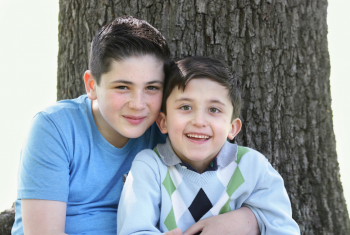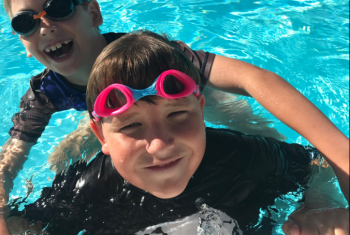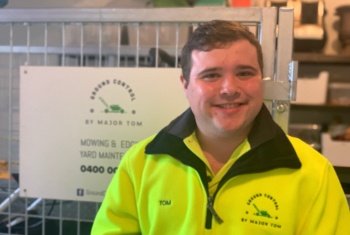Two years ago, Tiffney French couldn’t see a future for her three year old son Axel.
Axel couldn’t speak well or comprehend language, struggled with his fine motor skills, and was so frustrated by his inability to communicate that he was violent and had frequent meltdowns. He didn’t want to play with his older brother and sister and would only rarely say ‘mum’ and ‘dad’.
He frequently escaped from home through locked doors and over 6-foot high fences, and had no understanding or awareness of danger.
His frustrated parents had tried everything to get his behaviours under control, but nothing was working.
After much trial and error, Tiffney finally found a group therapy program that seemed to work when Axel was three years old, and he slowly but surely began to show progress. Joining the National Disability Insurance Scheme (NDIS) shortly thereafter was the cherry on top, giving the family the funds to allow Axel to continue in their chosen program, fully funded by the Scheme.
The result, Tiffney says, is a thriving five year old boy who is looking forward to starting prep in a mainstream school next year – something she never thought would be possible a few years ago.
“We were just surviving before but now everything is so much easier. I look back at where he’s come from to where he is now, and he’s a different child. We’re getting him ready for prep now, which has been a big goal,” Tiffney said.
“If you met him when he was two, you would say that’s not the same child.”
Tiffney said the NDIS had allowed Axel to access the early intervention therapy he needed that had allowed him to progress so far that mainstream schooling was now a viable option for him.
“He’s come so far in his development that I’m hoping he won’t even need a support person when he starts school next year,” Tiffney said.
“But if he does, we’ll work on that with the NDIS.”
Tiffney said that Axel no longer had meltdowns, was now able to talk and have conversations lasting up to five minutes, and regularly played with his siblings and other children.
“He’s just completed his first term with his Autism Queensland kindy group and is able to play with the other children in a small group. For part of the week, he goes to a mainstream kindy with 24 kids in the class and is helped by a support worker, and he copes well.”
“He knows how to write his name already and I’m very hopeful that he’ll be able to integrate into the classroom easily and be able to do things like sit on the mat and follow the teacher’s direction, which he can now do at kindy.”
Tiffney said that before the NDIS, she was concerned for Axel’s future as many existing services ceased providing support once a child reached the age of seven.
“It was quite daunting have a child with a disability before the NDIS, especially one with autism, because they didn’t do anything other than early years support,” Tiffney said.
“I’m so happy he was able to get his funding. Now I know he will be able to get the support he needs throughout his life which will mean that he will be able to one day live independently.”
“I never used to be able to see that as a possibility, but now I do see that he will be able to have a family one day, hold down a job, and be a part of society.”
“With his supports in place, my beautiful boy will be able to have a happy life.”


